- Home
- Johnny D. Boggs
MacKinnon
MacKinnon Read online
MacKinnon
JOHNNY D. BOGGS
© 2018 by Johnny D. Boggs
E-book published in 2018 by Blackstone Publishing
All rights reserved. This book or any portion thereof may not be reproduced or used in any manner whatsoever without the express written permission of the publisher except for the use of brief quotations in a book review.
Trade e-book ISBN 978-1-5384-7464-8
Library e-book ISBN 978-1-5384-7463-1
Fiction / Westerns
CIP data for this book is available from the Library of Congress
Blackstone Publishing
31 Mistletoe Rd.
Ashland, OR 97520
www.BlackstonePublishing.com
For Eugene Manlove Rhodes, “Pop” Sherman,
Alfred E. Green, Frances Dee, and Joel McCrea
Pasó Por Aquí
Chapter One
If luck favored him, Sam MacKinnon wouldn’t be lynched. The posse from Bonito City might just shoot him.
He lay between a large boulder and a fallen, rotting pine, about thirty feet below a handful of angry riders. They might not see him, but to MacKinnon that seemed a forlorn hope.
“Well?” a man bellowed high above MacKinnon’s hiding place.
Just one word, but MacKinnon recognized that Southern drawl, which almost caused MacKinnon to suck in a deep breath. Luckily, he stopped himself because expanding those lungs would likely have left him crying out, writhing and cursing.
“I’m waiting.” Nelson Bookbinder sounded touchy today. MacKinnon couldn’t blame him, though, as MacKinnon and four others had stopped the Lincoln County sheriff from having his breakfast this morning. Bookbinder, who also served as a deputy United States marshal, said: “What is it?”
“Some blood.”
From the guttural answer MacKinnon knew that Bookbinder’s Mescalero Apache Indian was scouting for the sheriff. MacKinnon thought he had seen Bookbinder and the Mescalero in Bonita City that morning, but prayed he had been wrong. Now he knew just how much his luck had soured.
“How much blood, Nikita?” Bookbinder asked.
I’m dead, certain sure. MacKinnon’s shoulders sagged. Nikita. The Mescalero with the Russian name. MacKinnon was doomed. The best lawman in New Mexico Territory, and the best tracker in the Southwest.
The Apache had no chance to answer. “Blood?” another posse member sang out. “Mort, that means we nicked one of ’em back in Bonito City. I told you I hit one of ’em rapscallions.”
“Did not. I seen one of ’em bandits almost fall out of his saddle when I fired.”
“Like—”
“Shut up, Davis. You too, Mort!” Bookbinder yelled. “Not one more word. You boys are so loud you’d startle a deaf man.” Bookbinder had to catch his breath. That figured. Pushing sixty years old, Bookbinder had ridden hard out of Bonito City, and climbing high into these rugged mountains left everyone short of breath. After a hard chase out of the mining camp and all the way here, the horses of the posse also labored for breath.
The Apache now answered the sheriff’s question. “Not much blood.”
“What do you think?” the lawman asked.
A long silence followed. Finally, the Mescalero said: “¿Quién sabe? They pay you to think.” The voice was rasping, but not the chopped-up English the authors had Nikita speaking in those Beadle & Adams penny dreadfuls. The man was educated.
“Don’t get smart, Nikita.”
Hell, Nikita’s smarter than me. MacKinnon grinned at the thought. What was that Carefree Dan Carter called it? Gallows humor. Which would be just about right, if Bookbinder’s posse bothered building a gallows.
“Well,” the Apache said, “there’s not much blood. Could’ve come from a horse or a man, but I don’t think it’s from a bullet or buckshot.”
Someone—most likely the man named Davis who had falsely taken credit for winging MacKinnon—cursed.
“Four riders went east,” the Apache said at length. “Another horse rode down … there.”
“Split up?” Bookbinder asked.
“No,” the Apache replied. “A horse. Without a rider.”
This Mescalero is good, MacKinnon thought to himself. Real good. But everyone in New Mexico Territory, or anyone who had picked up one of those half-dime novels, knows that.
Bookbinder offered a theory. “So one horse now carries two riders?”
MacKinnon had to breathe in deeply. Tears welled in his eyes as the ribs on his right side sent pain rippling up and down his side.
“No,” the scout answered the lawman.
“So what are you telling me?” Bookbinder demanded.
“I’m not telling you a damned thing,” the Apache said. “Except this … a little blood on rock and pine needles up here. One horse goes this way, without a rider. Four horses go that way, carrying no extra weight. They stopped here. Cinched up. Rested. Reloaded. Horses pranced around, dropped some apples, emptied their bladders. And a lot of rocks and dirt went falling down … there.”
This is it. MacKinnon’s fists clenched.
“All right, Nikita,” Bookbinder said. “Spill it. But be quick.”
MacKinnon started thinking about how he should play his hand when the posse found him.
“Man dismounts to tighten his cinch,” Nikita said. “Gets hit. Falls down the ridge. Horse bolts … that way. Other four ride off.”
“Why?”
“Sign rarely tells why.”
“They split up,” the one named Mort offered. “Maybe that hombre took the money.”
“How can you tell all that?” Davis asked. “I don’t see nothing but pine cones, dirt, rocks, and horse apples.”
“Shut up,” Bookbinder said.
The lawman had to be thinking now, and probably staring down the ridge, maybe looking right at the boulder MacKinnon hid behind. He did not move. He tried to breathe as lightly as he could, ignoring the ants crawling over his face, drawn by the blood seeping from his head.
“So one of the robbers hit this fellow while he’s adjusting his saddle, sent him rolling down the ridge. A double cross. Something like that, Nikita?”
“Maybe so.”
“Could that man have caught up his horse? Doubled back?”
“¿Quién sabe? I’d have to go down and look.”
Nelson Bookbinder swore a little harder this time.
Mort’s voice, not Nelson Bookbinder’s, bounced off the pine trees and the mountains. “Those robbers taken us for thousands of dollars and—”
“You don’t know what the Sam Hill you’re talking about, Mort,” Bookbinder said. “A thousand dollars my arse.”
“But that fellow could have rid off with the money they stole,” Davis suggested. “Figure we’d ride after the others. And without money, we couldn’t prove they done nothin’.”
“That’s right,” Mort said. “They wore wheat sacks over their heads. Nobody saw no brands on the horses or nothin’. Happened too fast.”
Now, the old law dog filled his ancient lungs with oxygen, exhaled, and the saddle creaked underneath him. MacKinnon heard all of that from his hiding place. Soon, they would find him. Unless they were blind. And nobody ever called Nikita or Bookbinder blind.
“You boys need to shut up,” Bookbinder said. “If one of those boys is down there, he can hear everything you’re saying.”
“Well …” Mort stopped.
Davis didn’t. “Then he can hear you, too, Sheriff. And he can even hear that Apache.”
“I want him to hear me, you fool!” Bookbinder thundered. “Hey down there!”
His voice echoed. Ma
cKinnon tasted sweat and blood.
“This is Nelson Bookbinder.” The name bounced off the mountains. “Sheriff of Lincoln County. If you’re smart, you’ll give yourself up. It’ll go easier on you. You don’t want to make me mad-der. I’m already mad.”
The echoes faded, and the lawman spit and called out: “Think straight, you idiot! Give up!”
A man doesn’t think straight when he’s broke and hungry.
That’s what MacKinnon tried to tell himself, and had been trying to tell himself since this morning. He wondered how Nelson Bookbinder would react to such an excuse. Not that the men from Bonito City would give him any chance to talk. No, they’d just shoot him dead, but that, MacKinnon thought, would be more merciful than stringing him up in one of these tall pines that had not been struck by lightning, that had not fallen near a big boulder, and had not become rotted and infested with bugs.
MacKinnon kept his head down. He did not look up toward the ridge, toward Nelson Bookbinder and that Apache scout. Not that MacKinnon could see above the boulder anyway. Looking up could get a man killed. If he looked up, he would have to lift his head, and that Mescalero probably could see through granite. He certainly could hear anything out of the ordinary.
Four men. MacKinnon expected a lot more riders, but from the penny dreadfuls MacKinnon had read, Bookbinder never liked big posses.
Above, a horse started to urinate, and Bookbinder swore.
“Mort,” the lawman said. “You and Davis head down there. See if you can pick up the trail. Maybe one of those curs is dead down there. If he’s dead, bring the corpse to Bonito City. I’m sure Charley the Trey will pay you a reward. If he’s alive, take him to Lincoln. And keep him alive.”
“Aw, Sheriff, you—”
“Your ears need cleaning?”
“No, sir,” Mort said humbly.
“If we can’t find nothin’?” Davis asked.
“Catch up with Nikita and me or ride back to Bonito City. Which way?”
“East,” the tracker said.
“Mexico’s south.”
The Apache laughed. “Before Mexico there’s the reservation. White men don’t ride through there.”
“You boys want to argue some more?” Bookbinder demanded. “Because four of those gents are riding hard away from us, maybe getting away, and if I can’t shoot them, I’ll settle for rubbing you two out.”
Saddle leather creaked again, followed by the metallic clicking of a repeating rifle being levered. “If we hear gunshots, we’ll ride back to help you boys,” Bookbinder said, softer this time. “Good luck.”
MacKinnon kept his face buried in the pine straw and dirt, which cooled his face, his neck, and his chest. Much cooler than the rest of MacKinnon’s body felt. At least, that’s what MacKinnon kept trying to tell himself.
The scout grunted and swung onto his horse. Mort and Davis mumbled something MacKinnon couldn’t catch. Metal hoofs clanged against rocks and crushed pine cones.
Two horses rode off. MacKinnon could not relax. A rock tumbled down the ridge, and Mort and Davis began coming down the slope toward MacKinnon, alone, head bleeding, unarmed, without a horse, without a chance.
Each second felt like a million years.
MacKinnon kept his face so close to the earth, he breathed in dirt and dust. A thousand legs of myriad insects prickled his skin, but he refused to lift his head off the stinking ground. He tried to keep his nerves under control, tried to keep his breaths regular, and tried, desperately, not to scream.
MacKinnon made himself wait.
The breath from his nostrils carved little ditches in the ground. He thought he could count all the grains of sand that he blew into little mounds beside pine cones, pine straw, and tiny pebbles. Trying to focus on those, MacKinnon blocked out the images of those two posse members from Bonito City. He watched the minuscule trench become deeper and the tiny mound climb higher as he breathed—and each breath in and out hurt his busted ribs.
He blinked. Ants and other insects scurried about. Beads of sweat rolled off his forehead, toward his eyes.
He waited. He listened.
“What do you think?” Davis asked. The closeness of the voice startled MacKinnon. They had to be right around the boulder.
“I ain’t no Apache,” Mort said, cursing and kicking a stone. “Horse took off yonder way.”
“Carrying a man?”
“The Apache said no. I ain’t no tracker.”
Footsteps moved away from the boulder toward the north. Which wasn’t necessarily a good thing. If one or both men got far enough away and over to one side, they’d be able to spot him, and Sam MacKinnon would be a dead man. MacKinnon considered praying.
One of the men cursed, sighed, and stopped walking.
“If that man’s still here, he could be behind any rock, any tree,” Mort said.
Davis agreed. “Might have us in his sights right now.”
“The money’s with ’em other four boys,” Mort said.
“How do you know?”
“Because, by God, Nelson Bookbinder rode after them, not this fellow.” Mort spit and added: “And Charley the Trey said he’ll pay for the return of the money and the robbers.”
They must have reached an understanding silently because the boots moved faster now, heading back. MacKinnon tensed. Maybe they had spotted him and were trying to give him the impression they were leaving. He closed his eyes, remembering when he and his sister played hide and seek. He thought if he closed his eyes, his sister couldn’t see him.
Gravel and stones began spilling down from above. Mort and Davis had to be climbing back up, toward their horses. They were talking, but MacKinnon only heard bits and pieces, followed by the sound of someone stepping into a saddle. A horse snorted.
“Let’s wait a while,” Mort said.
So MacKinnon lay there, hurting, bleeding, grimacing when some bug would bite him, but he never cried out. Never slept. Certainly could not relax. Five minutes. Then … MacKinnon wasn’t sure. Fifteen? Thirty?
Suddenly, a rifle shot ripped through the hills and forests, echoing off the rocks. MacKinnon jerked, tightening his eyes shut as spasms of pain shot through his right side.
A warning shot?
Have they seen me?
Nelson Bookbinder and the Apache would be returning at a gallop. Maybe, MacKinnon thought, if he could just run farther into the woods, down the mountain, find a cave or some sinkhole to hide in. Maybe … But that, he understood, would require him to stand up. To move.
He turned his head toward the sound of the gunshot. The horses started moving, but not toward the rotting tree and the boulder.
Lying on his left side, then back on his stomach, MacKinnon waited and listened. The hoofs moved into a fast walk and faded away.
Silence returned to the mountain forest. MacKinnon tried to comprehend what that rifle shot could have meant. He still thought the lawman would return to kill him or haul him to jail. Only when a mountain jay began singing did MacKinnon begin to think he might be safe.
Gingerly, he rolled over, brushed the ants off his face, cringing at the pain in his side. Bracing his back against the cold stone of the boulder, he clutched his right side with his left hand, and gently touched the cut above his right eye. Somehow, he managed to untie his bandanna and pressed one end of it against his head to stanch the blood.
His throat felt like sand.
Sweat trickled into the cut, burning like fire, down his scraped cheeks.
He stared at the pines and the rocks. A painter, a photographer, a minister, or just about anyone would have found this place beautiful. Towering firs and pines rustled in the wind, and rolling hills climbed in the cloudless blue sky. MacKinnon might have found it pretty, too, except for the trouble he found himself in.
Two or three ribs had to be cracked, if not broken.
He had no gun, only a folding knife in his trousers pocket, and just fishing that old thing out would hurt like the devil. No canteen, no water, and he’d have a long, hard climb back to the Río Bonito. Maybe those boys in the posse were right. Maybe no one would recognize MacKinnon as one of the robbers. But a stranger, horseless, with an empty holster on a shell belt, with a cut across his head and busted-up side. That would arouse a lot of suspicion, and Charley the Trey probably would need no more evidence to order a hemp party.
It was, MacKinnon decided, a rather pretty place to die.
Still, he halfway wished that the posse had found him and put him out of his misery.
For now, this second, MacKinnon was safe.
Safe? That was a good joke. Safe? Far from it.
He wet his cracked lips, and he spoke in a hoarse whisper. “Lord, there ain’t nobody having a worse run of luck right this minute than James Samuel MacKinnon.”
Chapter Two
“What you digging?”
Katie Callahan closed her eyes and drove the pickax into the sunbaked ground. The metal rang out and the wooden handle vibrated with such force, she had to let go and shake feeling back into her fingers.
“A well?”
Once her eyes opened, Katie sighed, and looked at her little brother. “No.” Her voice sounded so hoarse, so desperate. She stood in the middle of the desert, her lungs heaving, her hair and dress drenched in sweat.
“What then?” Gary asked.
A grave. Katie ran her tongue over cracked lips.
“Nothing,” she said.
The five-year-old jumped into the hole that Katie had started hours ago. When she saw how little she had managed to dig, Katie practically laughed. Hole? Grave? It wasn’t deep enough to cover an anthill.
“I wish it was a well,” Gary said. “I’m thirsty.”
After wiping sweat off her face with her sleeve, Katie lifted her hands, palms up. Splinters freckled her hands where the blisters did not. Blood stained her fingertips. She coughed, glanced at the pickax and the shovel, and found her baby brother again.

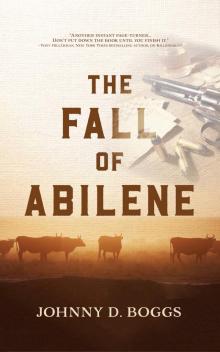 The Fall of Abilene
The Fall of Abilene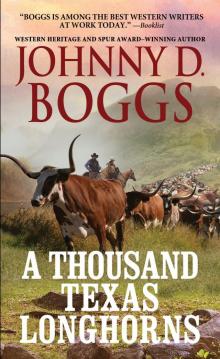 A Thousand Texas Longhorns
A Thousand Texas Longhorns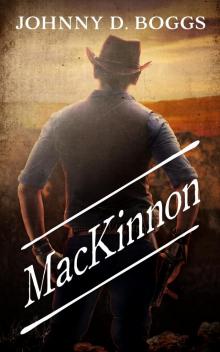 MacKinnon
MacKinnon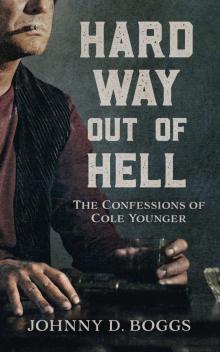 Hard Way Out of Hell
Hard Way Out of Hell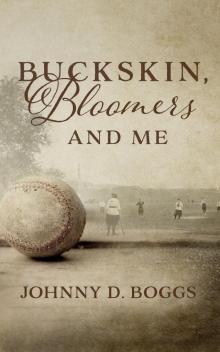 Buckskin, Bloomers, and Me
Buckskin, Bloomers, and Me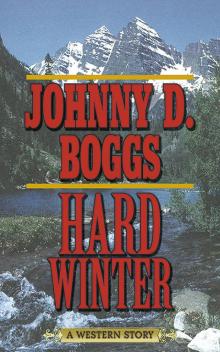 Hard Winter
Hard Winter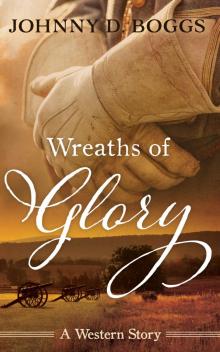 Wreaths of Glory
Wreaths of Glory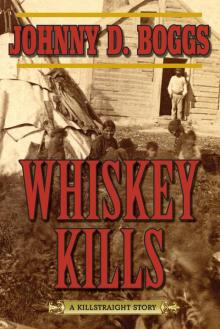 Whiskey Kills
Whiskey Kills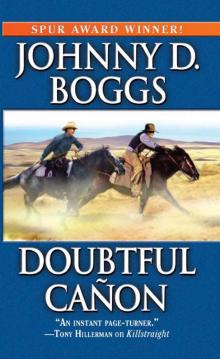 Doubtful Canon
Doubtful Canon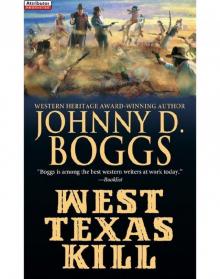 West Texas Kill
West Texas Kill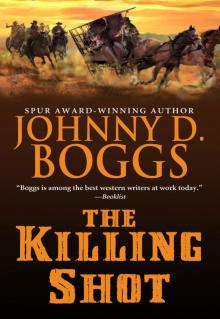 The Killing Shot
The Killing Shot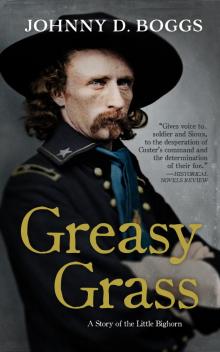 Greasy Grass
Greasy Grass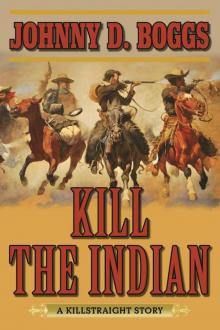 Kill the Indian
Kill the Indian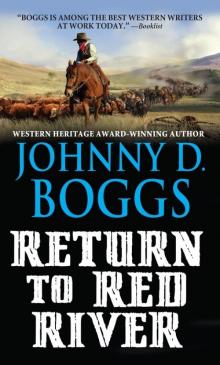 Return to Red River
Return to Red River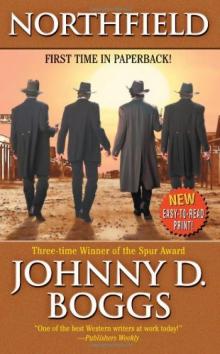 Northfield
Northfield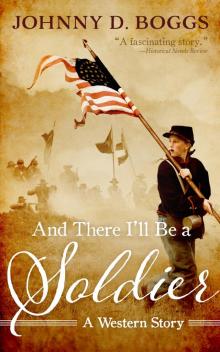 And There I’ll Be a Soldier
And There I’ll Be a Soldier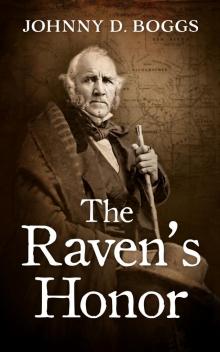 The Raven's Honor
The Raven's Honor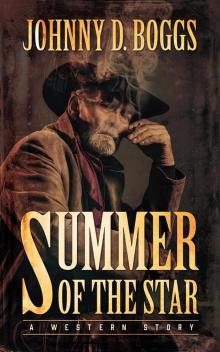 Summer of the Star
Summer of the Star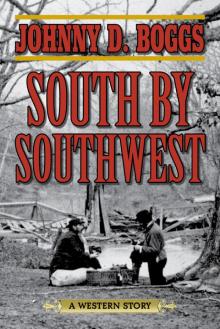 South by Southwest
South by Southwest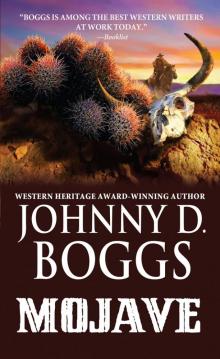 Mojave
Mojave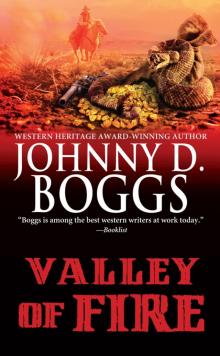 Valley of Fire
Valley of Fire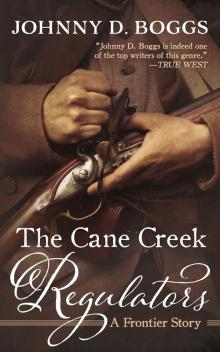 The Cane Creek Regulators
The Cane Creek Regulators